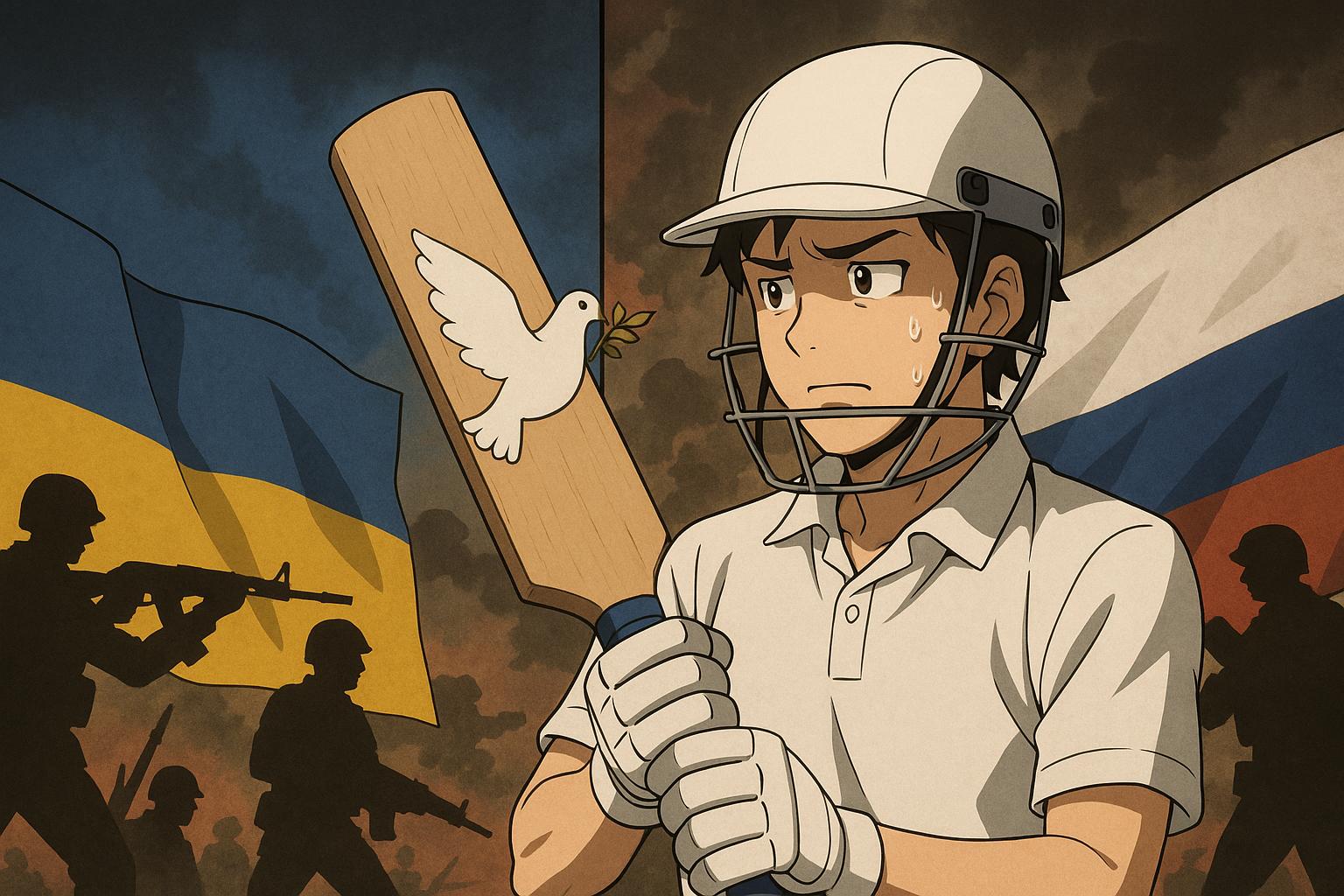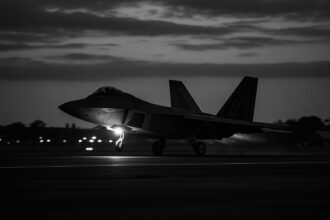The International Cricket Council faces criticism over chairman Jay Shah’s public support for the Indian military during rising India-Pakistan conflict, while banning Australian cricketer Usman Khawaja from displaying peace symbols, exposing contradictions in its stance on political expression in cricket.
The International Cricket Council (ICC) has found itself at the centre of criticism following comments made by its chairman, Jay Shah, who openly backed the Indian military during a period of heightened tensions with Pakistan. This controversy has intensified after the ICC controversially banned Australian cricketer Usman Khawaja from promoting a peace dove symbol, a move many perceive as hypocritical amidst Shah’s public military support.
In an Instagram post, Shah, who is the son of India’s Home Affairs Minister, expressed deep admiration for the Indian armed forces, stating, “Our armed forces are our pride and no words are enough to express their valour and commitment in protecting our motherland and people.” This statement came in the wake of the launch of ‘Operation Sindoor’, a retaliatory measure by India following a terrorist attack in Pahalgam, Kashmir, which resulted in the deaths of 27 civilians. The attack, attributed to militants based in Pakistan, prompted a series of military strikes along the border, escalating an already volatile situation.
The tensions escalated further with Pakistan’s counteractions, which involved drone and artillery attacks, ushering in a worrisome phase in the relations between these nuclear-armed neighbours. In the aftermath, diplomatic tensions soared, with India suspending the Indus Waters Treaty, a landmark agreement governing the sharing of water resources between the two nations. The fallout also disrupted cricket schedules: the Indian Premier League (IPL) faced a week-long suspension, while the Pakistan Super League (PSL) was relocated to the United Arab Emirates.
As cricket activities faced upheaval, the ICC’s handling of the situation came under fire, especially with Shah’s military endorsement juxtaposed against the restrictions imposed on Khawaja. Veteran journalist Malcolm Conn did not mince words regarding what he perceived as stark hypocrisy, stating, “So Usman Khawaja is banned by the ICC from putting a dove on his bat supporting peace in the Middle East but ICC chairman Jay Shah… can openly support the Indian military during conflict. Staggering hypocrisy!!!”
Khawaja, a prominent advocate for human rights, had faced restrictions for displaying humanitarian messages during the 2023 Boxing Day Test. After initially sporting slogans such as “Freedom is a human right” and “All lives are equal” on his shoes, he was forced by the ICC to cover them up, raising questions about the organisation’s commitment to free expression in sport. His planned use of a dove symbol, referencing Article One of the Universal Declaration of Human Rights, received similar rejection, despite backing from Cricket Australia.
Critics of the ICC have highlighted a perceived double standard, contending that while advocates for peace and humanitarian efforts face censorship, nationalistic displays from officials are tolerated, suggesting a lack of impartiality in the governing body. Comments on social media reflected frustrations over these inconsistencies: “Promoting peace is ‘political’, but nationalistic displays by those in power are acceptable?” one user lamented.
In contrast, Shah’s defenders have argued that his statements stem from his identity as an Indian citizen, rather than his role within the ICC. Some supporters pointed out the distinction between personal expression and official ICC policy, asserting that it is natural for Shah to express support for his country, regardless of his organisational role. This sentiment has resonated with many who defend India’s right to assert its sovereignty amid encroachments.
The entanglement of cricket with geopolitical strife presents a challenging landscape for the ICC, which ostensibly stands for the principles of fair play and sportsmanship. As the lines blur between sport and politics, the question remains: can the ICC maintain its credibility while navigating the fraught dynamics of national pride and a unified sporting ethos? The reactions to Shah’s remarks and Khawaja’s limitations suggest a growing discord between cricket’s traditional unifying values and the realities of national allegiances.
As this contentious narrative unfolds, the implications for the future of international cricket and its governance are profound, challenging the ICC to establish a more coherent and balanced approach to national issues while upholding the fundamental tenets of sport itself.
Reference Map
- Paragraphs 1, 2, 3, 4, 5, 6, 7, 8.
Source: Noah Wire Services
- https://www.dailymail.co.uk/sport/cricket/article-14721577/ICC-lashed-openly-supporting-Indian-military-banning-Usman-Khawaja-peace-dove.html?ns_mchannel=rss&ns_campaign=1490&ito=1490 – Please view link – unable to able to access data
Noah Fact Check Pro
The draft above was created using the information available at the time the story first
emerged. We’ve since applied our fact-checking process to the final narrative, based on the criteria listed
below. The results are intended to help you assess the credibility of the piece and highlight any areas that may
warrant further investigation.
Freshness check
Score:
8
Notes:
The narrative discusses recent events involving heightened tensions between India and Pakistan, along with actions by the ICC, which suggests the information is relatively current. However, without specific dates in the text, it’s difficult to gauge if the content is entirely up-to-date.
Quotes check
Score:
6
Notes:
The quote from veteran journalist Malcolm Conn is not linked to any specific online source, making it difficult to verify its original context or date. Jay Shah’s statement about the Indian armed forces is provided, but again, no specific source or date is mentioned beyond the context of recent tensions.
Source reliability
Score:
7
Notes:
The narrative originates from a reputable news source, the Daily Mail, which, while known for its sensationalist approach, typically reports on current events based on some factual information. However, the Daily Mail is not always considered a gold standard for balanced reporting.
Plausability check
Score:
9
Notes:
The scenario described is plausible given the geopolitical tensions between India and Pakistan, as well as the potential for sports to be entangled with politics. The specific details about the ICC’s actions and reactions from various parties also align with plausible outcomes in such situations.
Overall assessment
Verdict (FAIL, OPEN, PASS): OPEN
Confidence (LOW, MEDIUM, HIGH): MEDIUM
Summary:
The narrative discusses a sensitive geopolitical issue intertwined with sports, presenting a plausible scenario that aligns with current tensions between India and Pakistan. However, the lack of specific dates and direct links to original quotes reduces confidence in the entirety of the information.













